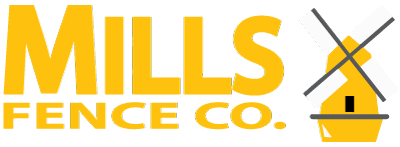How to Choose the Right Fence for Your Garden
The type of fence you use to outline your garden influences both the privacy and style of your yard. Fortunately, there is a wide variety of fencing options available. In fact, you may feel overwhelmed deciding which type to install because of all the choices.
Some fence materials may match the theme of your yard best, while others provide security from certain animals in your area.
If you are installing a fence around your garden, here are some considerations to help you choose the best fencing for your garden.
Security
One of the main reasons people install fences around their gardens is to provide protection from animals. Research which types of animals are common in your area to determine the best type of fence for your garden.
Some common animals that may pester a garden include groundhogs, raccoons, deer, skunks, and voles. Once you determine the types of animals that may enter your garden, you can protect your garden accordingly. For instance, you may need a rabbit guard for smaller rodents or welded-wire fence for larger animals.
Privacy
If your garden is in your front yard or next to a neighbor’s garden, you may need a fence to provide privacy. The type of fencing material you choose will depend on how secluded you want the garden space to be. For example, closed-board wood panels offer a secluded area, while black railing fences provide less privacy.
Keep in mind that a private fence around your garden area may obstruct your view into the yard. However, if your yard has areas you don’t want to see, the fence can hide unattractive items, such as garbage cans, compost heaps, or electrical boxes.
Style
The fencing material you choose often affects the style of your garden. For instance, if you want an urban, sophisticated style for a small garden, black rail fencing is a great option. On the other hand, if your backyard has a more country-style theme, a wood fence may be a better option. Use the fencing material to match the theme of your garden and backyard.
Maintenance
The amount of maintenance you want to put into your garden fence can help you narrow down fence materials. The most common types of garden fence materials used are wood, PVC, or metal. Plastic and metal garden fences are a great low-maintenance option.
Conversely, wood fences will normally require a lot of maintenance. Most wood fences must be sealed with wood preservatives and painted every few years. Otherwise, the material will decay.
Plants
Consider openwork fencing if you have climbing plants in your garden. Openwork fencing is also ideal for smaller gardens that need to use as much space as possible for plants.
For instance, if you have limited space, you may need to get close to the fence to weed the garden. Openwork fencing makes fitting in tight spaces easier and less constraining. Some openwork fencing options include wires between wood timbers or black rail fences.
Consider these suggestions as you look for the best fencing material for your garden. Once you determine which material you want, contact the professionals at Mills Fence for help with installation.
